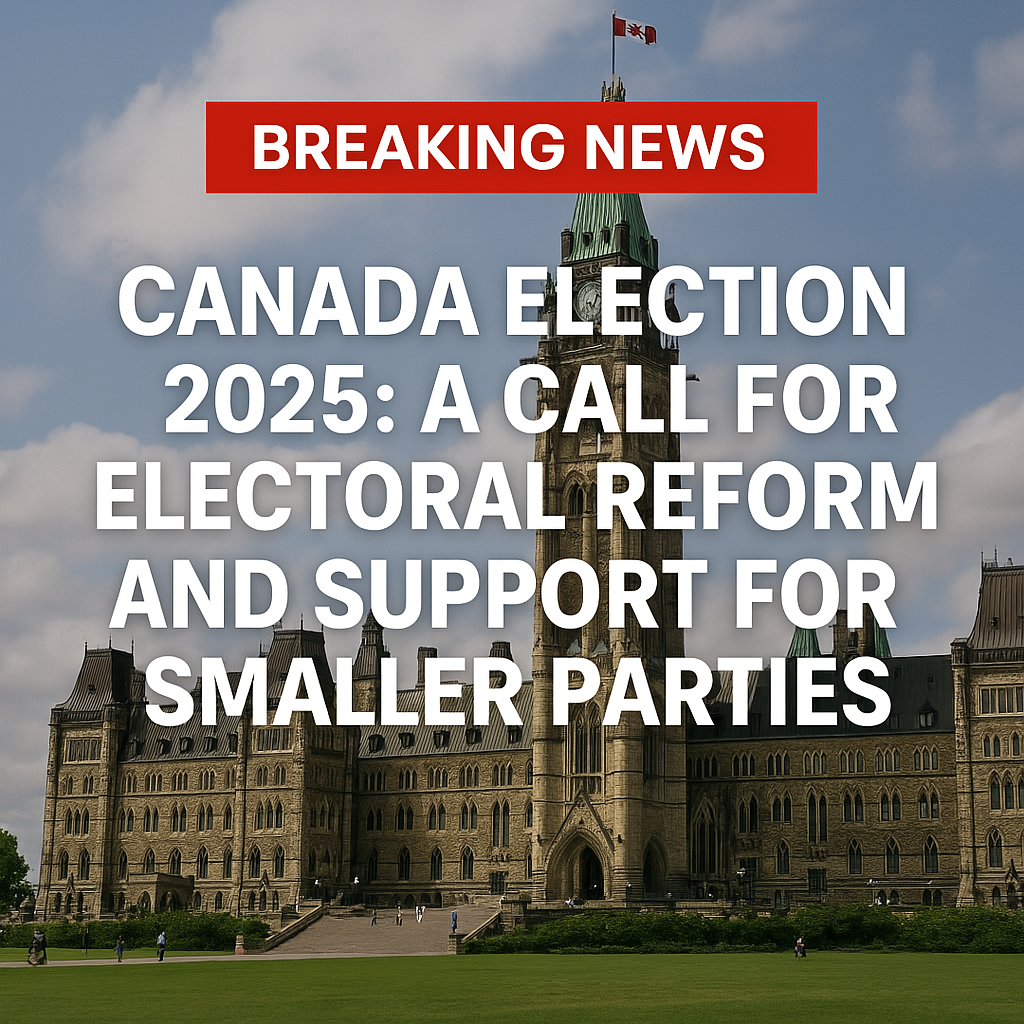
As the 2025 federal election approaches, it’s time for Canadians to reconsider the way we approach voting and look beyond the traditional options. For far too long, many voters have followed the familiar patterns, casting their ballots without considering how much our nation and the world have changed. This election provides a crucial opportunity to break free from old habits and vote in a way that truly reflects our values, aspirations, and desire for a better future.
The choices we make today will have a lasting impact on the direction of our country and the government we want. Now more than ever, we have the chance to reimagine our electoral system and take steps toward meaningful change.
1. The Flaws of Strategic Voting
One of the most common tactics used in Canadian elections is strategic voting. This practice involves voting not for the party you genuinely believe in, but rather to prevent the party you least support from winning. While this approach may seem pragmatic, it’s fundamentally flawed. By casting a ballot against a party instead of for one, we are reinforcing the status quo, not fostering progress.
When voters dissatisfied with the Liberals vote for the Conservatives (or vice versa), they are simply perpetuating the same political cycle. This back-and-forth between the two major parties has done little to improve the country. As the saying goes, expecting different results from the same strategy is the definition of insanity. It’s time to break free from this pattern and vote for change.
2. Supporting Smaller Parties Is Not Vote Splitting
A common misconception in Canadian politics is that voting for smaller parties is “splitting the vote” and making it harder to defeat the larger parties. However, this view overlooks an important point: when you vote for smaller parties with distinct platforms, you are sending a powerful message that change is necessary. Supporting these parties isn’t about dividing votes — it’s about embracing fresh perspectives and diverse voices that reflect the true will of the people.
The more people who back smaller parties, the more likely we are to see new ideas introduced into Parliament. This is how we create real progress and start addressing the issues that matter to all Canadians, not just the interests of the two largest parties.
3. The Party Whip and Its Impact on Representation
Another issue that plagues our political system is the party whip. In large parties, MPs are often forced to prioritize their party’s stance over the concerns of their own constituents. This dynamic leads to a lack of genuine representation, as MPs are bound to party loyalty instead of listening to the needs of their voters.
If your MP isn’t truly representing you, why continue to support them? Smaller parties, however, tend to be more responsive to voters because they are actively working to earn your trust and your vote. Supporting these smaller parties could lead to a more responsive and representative Parliament, one that genuinely reflects the values of the people it serves.
A Path Toward Electoral Reform
As a board member of Fair Vote Canada, I believe it’s vital to push for electoral reform. Canada’s current first-past-the-post system tends to silence smaller parties and limits the diversity of voices in Parliament. This system often discourages meaningful representation, as only the two major parties have a real chance of success.
By advocating for electoral reform and supporting smaller parties, we can work toward a system that better reflects the will of the people. We need a system that ensures every vote truly counts, and that provides a platform for all Canadians, not just the status quo.
In the upcoming election, Canadians have the power to create a more inclusive, fair, and representative government. It’s time to rethink how we vote, push for the changes we need, and support the parties that will give a voice to those often left out of the political conversation.
Mimi Lee is a board member of Fair Vote Canada and a resident of Markham.